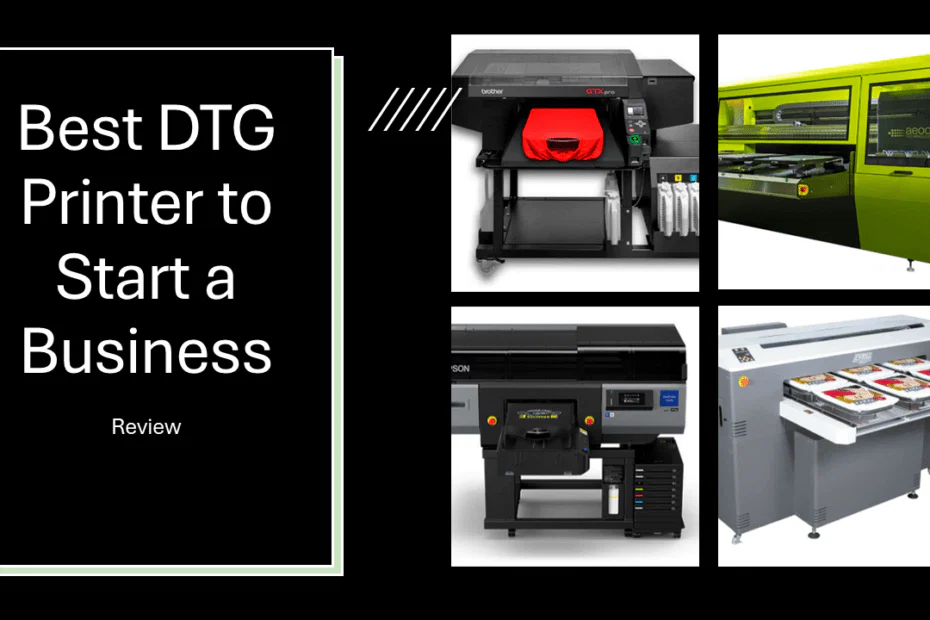A DTG printer, or Direct-to-Garment printer, is a specialized inkjet printer designed to print high-quality, full-color images directly onto textiles, most commonly cotton t-shirts. Unlike traditional screen printing, which uses stencils and layers of ink, DTG printers apply water-based textile inks directly onto the fabric using a print head, similar to how a paper printer works. The design is typically prepared on a computer and then sent to the printer, which precisely sprays the ink onto the garment.
Direct-to-garment (DTG) printing has revolutionized how businesses approach custom apparel production. For medium to large enterprises, investing in a high-quality DTG printer not only enhances productivity but also enables the delivery of vibrant, long-lasting prints at scale. This article covers the best DTG printers for businesses aiming to expand or upgrade print capabilities. Each product recommendation is tailored for professionals serious about garment printing, focusing on reliability, performance, and features that matter for sizable operations.
Table of Contents
- Brother GTX-424 GTXpro BULK
- Epson SureColor F3070
- Kornit Atlas MAX
- Ricoh Ri 2000
- Aeoon Kyo Series
- DTG Digital G4
- Omniprint Freejet 330TX Plus
- Polyprint TexJet NG120
- DTG Digital M6
- Summit RTDTG Printer
1. Brother GTX-424 GTXpro BULK
Why It’s Recommended: The Brother GTX-424 GTXpro BULK is engineered for high-volume production with a bulk ink system that significantly reduces printing costs over time. It’s ideal for businesses aiming for scalability without compromising print speed or quality.
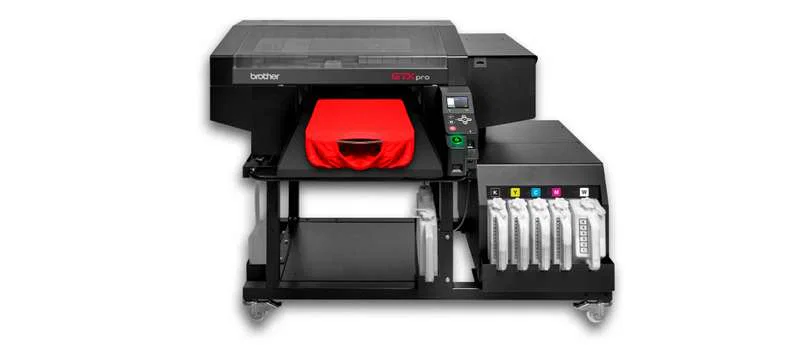
Price: ±$37,850
Key Features:
- Industrial-grade build for durability
- High-resolution printing up to 1200 dpi
- Bulk ink system for cost-effective, long-run jobs
- Reduced maintenance times with intelligent design
2. Epson SureColor F3070
Why It’s Recommended: This printer is designed specifically for high-production environments, making it an excellent choice for mid-to-large apparel printing businesses. Its dual printhead setup ensures ultra-fast output.
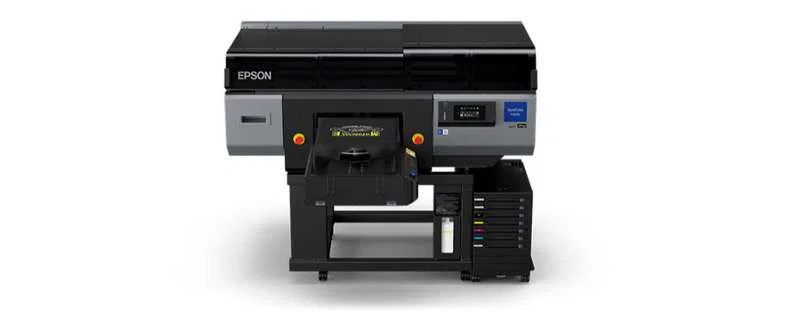
Price: ±$59,995
Key Features:
- Industrial-level productivity
- Dual PrecisionCore printheads
- Automated garment height adjustment
- High ink efficiency with bulk tanks
3. Kornit Atlas MAX
Why It’s Recommended: The Kornit Atlas MAX is one of the most advanced DTG systems on the market, known for its automation capabilities and sustainable technology. It supports full automation and is built for enterprise-level output.
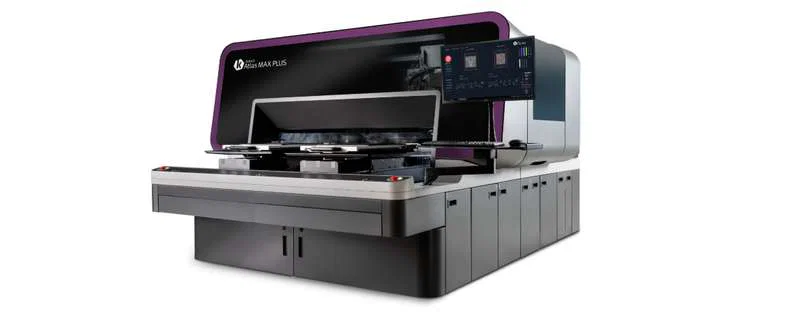
Price: ±$50,000
Key Features:
- Integrated smart curing and inline pretreatment
- High-definition image quality with XDi 3D printing technology
- Eco-friendly NeoPigment™ inks
- Designed for mass customization
4. Ricoh Ri 2000
Why It’s Recommended: The Ricoh Ri 2000 offers a balance of affordability, performance, and speed. It’s ideal for businesses that require reliability without investing in the most expensive models.
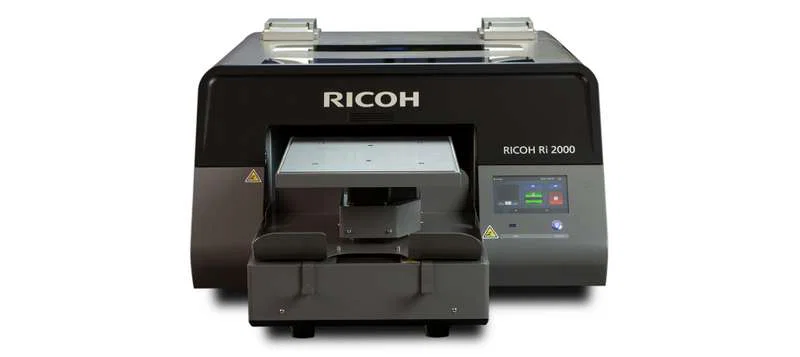
Price: ±$20,499
Key Features:
- Fast loading and auto-height adjustment
- Industrial-quality printing
- Easy maintenance and intuitive touchscreen interface
- Smart alerts for proactive upkeep
5. Aeoon Kyo Series
Why It’s Recommended: Known for ultra-high-speed printing, the Aeoon Kyo Series is built for mass production. It’s a top-tier solution for businesses focused on volume and quality at scale.
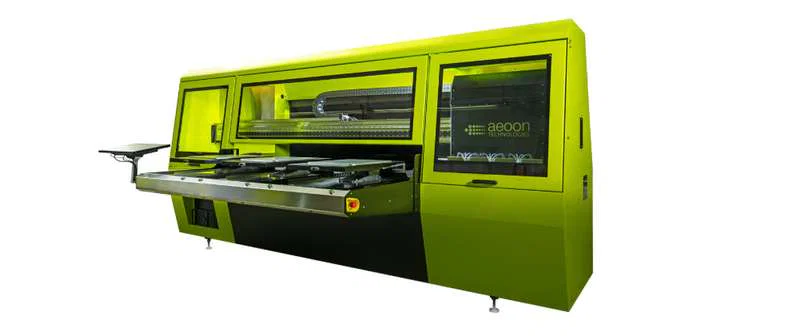
Price: ±$90,000
Key Features:
- Up to 1280 prints per hour (Kyo Hybrid Series)
- Modular system for future upgrades
- Advanced ink management
- Ideal for large-scale fulfillment centers
6. DTG Digital G4
Why It’s Recommended: This printer is designed with a patented vacuum platen system for better garment alignment and ink efficiency, making it a reliable choice for medium-sized operations transitioning into higher volumes.
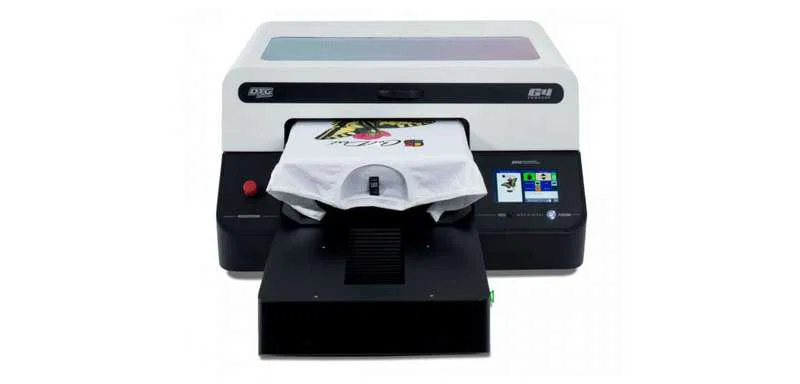
Price: ±$13,995
Key Features:
- Built-in touch interface
- Vacuum platen system for print consistency
- Optimized for cost-effective ink usage
- Compact yet capable of high output
7. Omniprint Freejet 330TX Plus
Why It’s Recommended: The Freejet 330TX Plus is known for its vibrant prints and versatility across different garment types, making it a strong option for growing businesses that value flexibility.
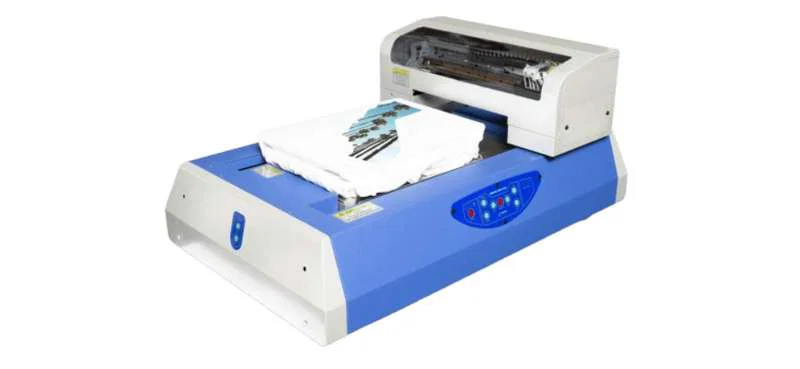
Price: ±$8,999
Key Features:
- High-detail print resolution
- White ink circulation system
- Versatile printing across cotton, polyester blends, and dark fabrics
- Software support for easy integration into workflows
8. Polyprint TexJet NG120
Why It’s Recommended: The TexJet NG120 is a powerful solution for medium businesses that prioritize quality and user-friendly operation. It’s also suitable for semi-automated production lines.
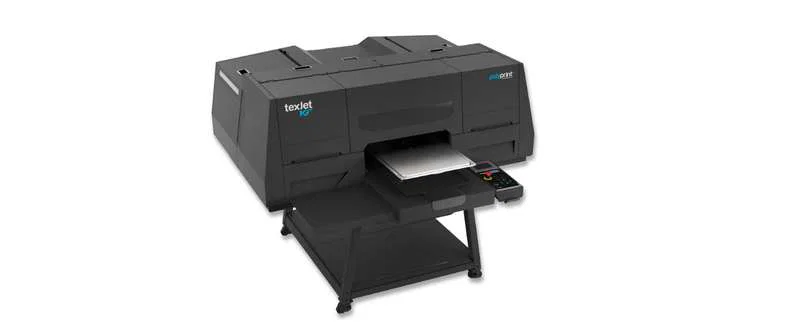
Price: ±$29,995
Key Features:
- Print up to 60 garments per hour
- Eco-passport certified inks
- Automated head cleaning
- Print area up to 50×70 cm for large designs
9. DTG Digital M6
Why It’s Recommended: The DTG Digital M6 is highly recommended for businesses seeking high-volume, high-quality direct-to-garment (DTG) printing solutions. Its advanced features and capabilities make it a standout choice in the industrial DTG printer market.
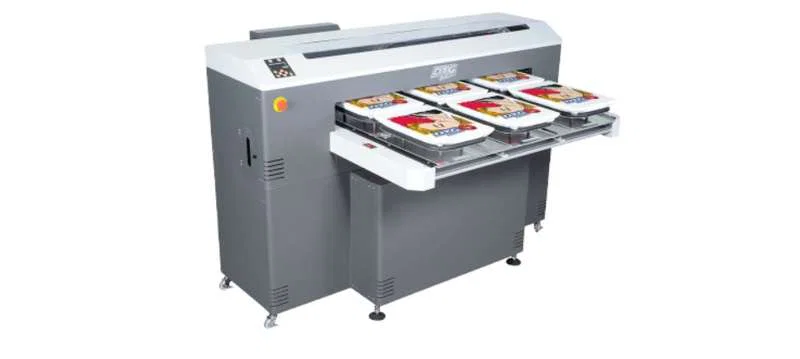
Price: ±$19,210
Key Features:
- Multi-Garment Printing
- High Resolution up to 2880 DPI
- White Ink Management System (WIMS)
- Efficient Workflow Integration
- Designed for Industrial Use
10. Summit RTDTG Printer
Why It’s Recommended: The Summit RTDTG balances professional output with cost-conscious design, making it suitable for medium businesses exploring DTG expansion with controlled investment.
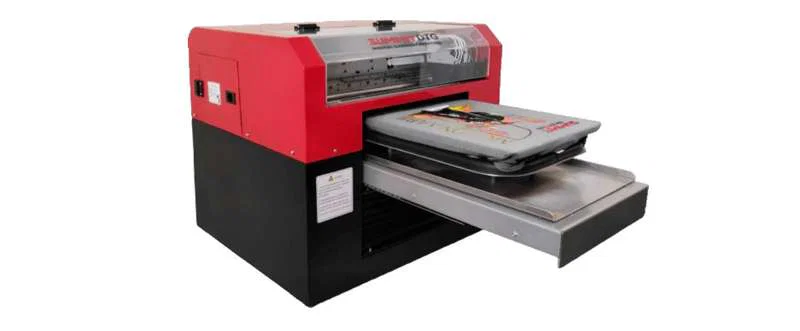
Price: ±$5000
Key Features:
- Competitive price-performance ratio
- Precise ink placement and white ink layering
- Compact form factor for smaller production spaces
- User-friendly interface for ease of training and operation
Advice Before Buying a DTG Printer for Business
Before purchasing a Direct-to-Garment (DTG) printer for a medium to large business, it’s crucial to evaluate production volume and scalability. DTG printers are excellent for high-detail prints and quick turnaround, but not all models are built to handle large-scale operations. Our business must assess current and projected order volumes to ensure the printer can maintain efficiency without constant maintenance or downtime. Additionally, we should consider print speed, ink consumption, and compatibility with automated workflows or conveyor systems if expansion is a future goal.
Another key consideration is the total cost of ownership, including not just the upfront investment, but also recurring costs such as ink, pretreatment, maintenance, and labor. Some DTG printers may appear affordable initially but have high running costs that eat into profit margins. It’s also essential to evaluate the printer’s reliability, support network, and warranty options. A reliable service and parts supply chain, along with good manufacturer support, can significantly reduce downtime and ensure consistent production quality. Environmental impact and compliance with industry standards might also be relevant for companies focused on sustainability or operating in regulated industries.
You might like other interesting articles?

